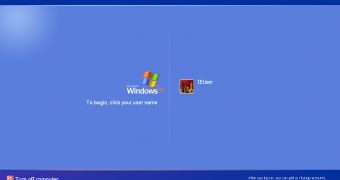Microsoft is expected to announce plans for a new operating system, most likely called Windows 9, at the BUILD developer conference in April, while the launch of the new project is very likely to take place approximately one year later.
This leaked product roadmap doesn’t reveal too many details in terms of features, but we do know that Windows 9 could bring back the famous Start Menu, while also comprising options to launch Metro apps straight on the desktop and use them in their very own window.
Sure, there are a lot of new features and options that could be implemented in Windows 9, but we’ve recently heard about a scenario which, at some level, actually makes sense.
Many of our readers have told us that retiring Windows XP is actually a pretty big mistake given its popularity, but Microsoft doesn’t really seem to care about all of this right now and goes on with plans to kill the operating system on April 8.
Most of those who are still running Windows XP right now have told us the same thing. Though it’s 12 years old, Windows XP is still good enough to be used on a daily basis, even though it’s pretty obvious that in some cases, it lacks the necessary technologies to cope with today’s demands.
In a chat we had with a developer who creates apps for Windows 8.1, he mentioned what could probably be the easiest way to migrate all users off Windows XP and boost the adoption of the modern operating system: relaunch the aging Windows XP with modern features. And we’re not necessarily talking about the Modern interface and Metro apps. Just a fully up-to-date Windows XP version that has what it takes to become the successor of Windows 8.
To resume a 30-minute conversation to just a few lines, he said that Windows 9 would actually enjoy a much bigger success if Microsoft decided to offer the new operating system in the form of Windows XP equipped with modern features. And it’s not all about the visual interface, he said, because what users loved the most about Windows XP was the overall reliability of the operating system.
And there is no doubt that Windows XP was a state-of-the-art platform that still works unbelievably well even more than 12 years after launch.
Of course, it’s not surprising at all that so many users are still running Windows XP right now and, what’s more, many have already expressed their intention to stick to the same platform after retirement, though it’s pretty clear that this is very risky.
But in essence, a modern version of Windows XP that would be able to cope with today’s requirements would be a gift from god for many users out there, pretty much because no new version of Windows has until now managed to work so well.
Windows 7 has indeed impressed, there’s no doubt about it, but Windows XP usage continues to be large enough to convince Microsoft to take some other options, besides retirement, in consideration.
The modern Windows XP would clearly boast an improved look based on the original UI, with a Start Menu, a Start button and all the other user-friendly options offered to consumes in the traditional Windows.
It would definitely need the security improvements available in Windows 8 and 8.1, a modern browser such as IE11, plus as many customization options as possible. Users really need the power to tweak their operating systems, hence the success recorded by third-party customization tools out there.
We won’t get too techy to describe the technological improvements that Windows XP would need, but a modern version of the operating system would clearly sell better than Windows 8, which has often been described as the new Vista. Windows 8 and 8.1 are barely powering 10 percent of desktop computers worldwide right now.
Although for some the idea of relaunching Windows XP isn’t exactly their cup of tea, Microsoft itself used the popularity of an older operating system to promote new projects.
Soon after the launch of Windows 8, Microsoft advertised it as a modern version of Windows 7, saying that it has exactly the same performance and features as its predecessor, but in a new and more appealing package.
Just think about it, Windows XP running on newer PCs and boasting a wider feature lineup. A lower price to make it accessible for more users, and even multiple versions, some of which could be deployed on low-spec PCs, these could be the ingredients of a very successful project that would clearly appeal to a lot of buyers.
In the end, Windows XP clearly deserve another chance to survive and Windows 9 surely needs luck to really excite and clear the bad impression left behind by Windows 8. But maybe, just maybe, retirement isn’t the only way to go for Windows XP.

 14 DAY TRIAL //
14 DAY TRIAL //  small.png)
 small.png)
 small.png)
 small.png)
 small.png)
 small.png)